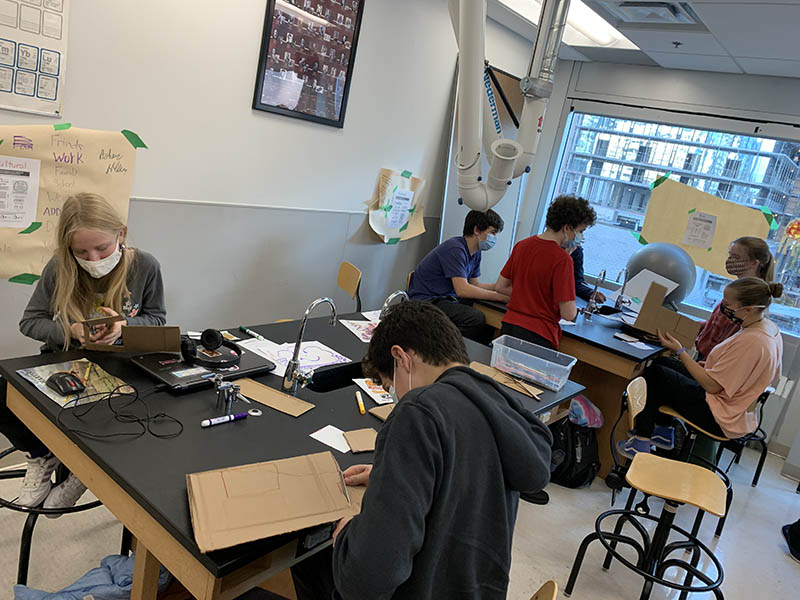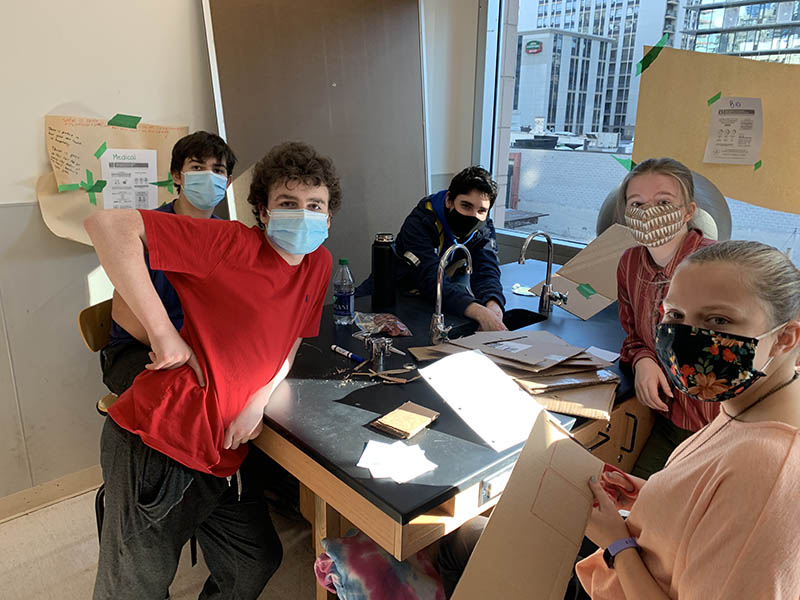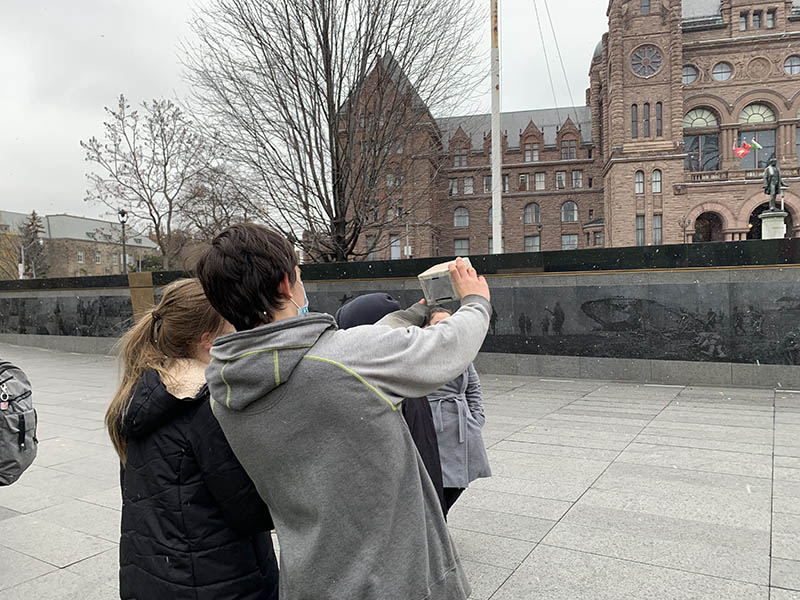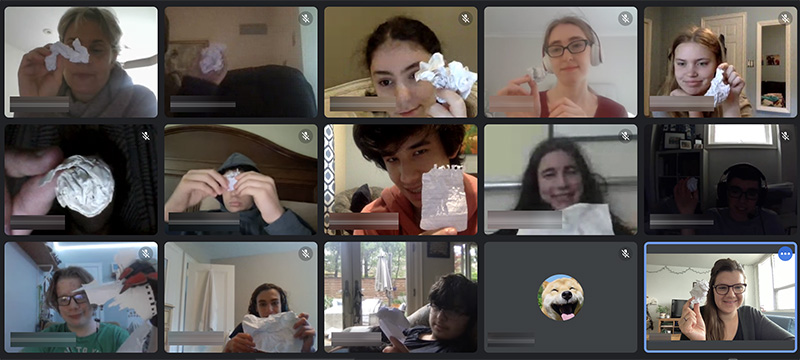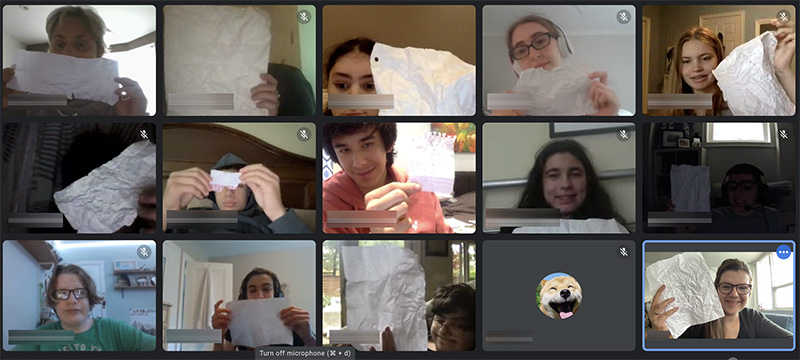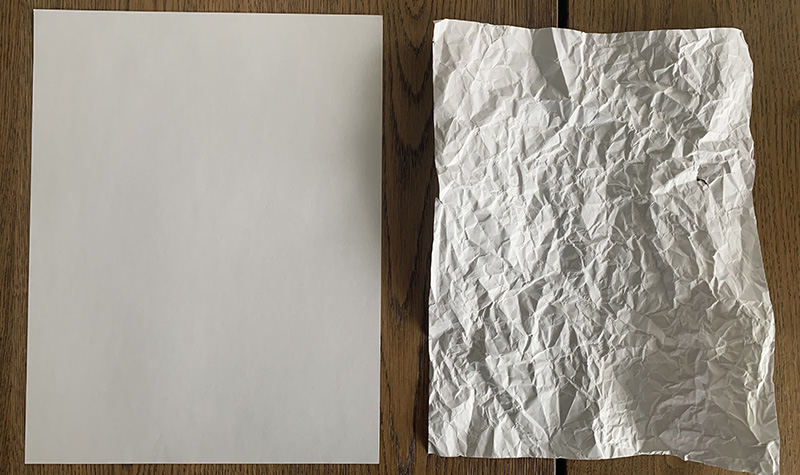In November, the Super Sciences combined forces (peacefully!) to investigate images of peace in the community. Brydie’s class introduced relationships while Megan’s class introduced how light forms images as we reflected on historic, present and future relationships in our global society. The classes collaborated in building camera obscuras! The students in the photograph (not taken with our cameras!) are building the cameras. The aperture collected the light and the tinfoil covering the aperture helped to reflect onto the surface of the wax paper. The light rays, traveling in a straight diagonal direction, inverted the image onto the wax paper that acted as a window to the world. The idea was to reflect on how we create ideas of peace from diverse perspectives. We captured images of peace through drawing and actively reflected on what is peace in our society as we engaged in a brisk walk through the city streets.




